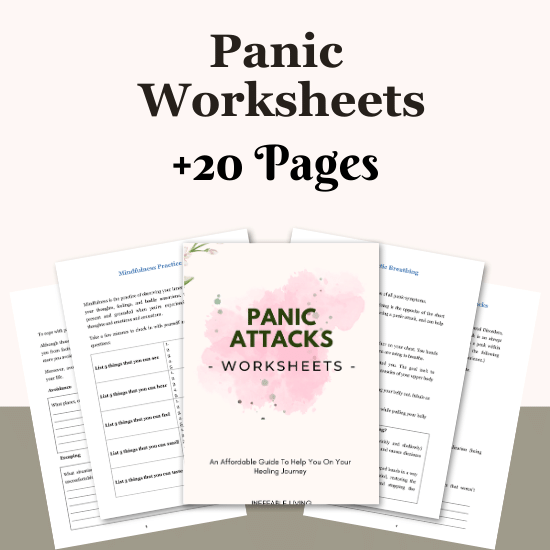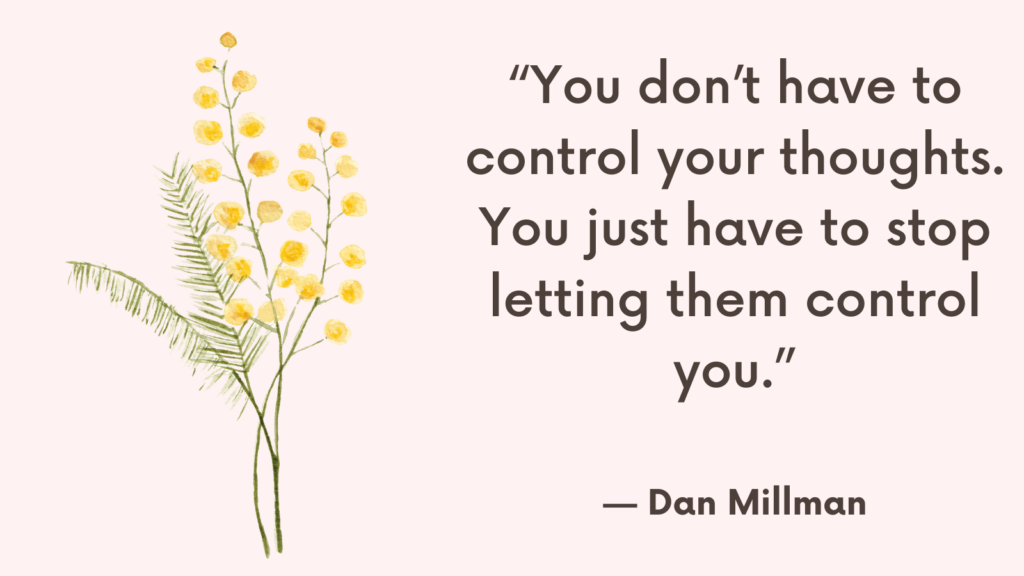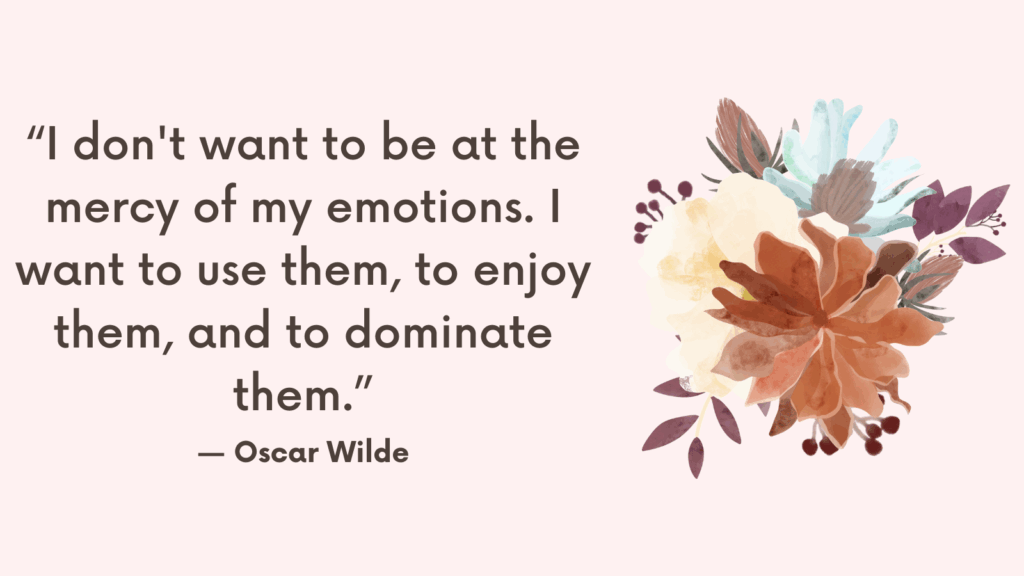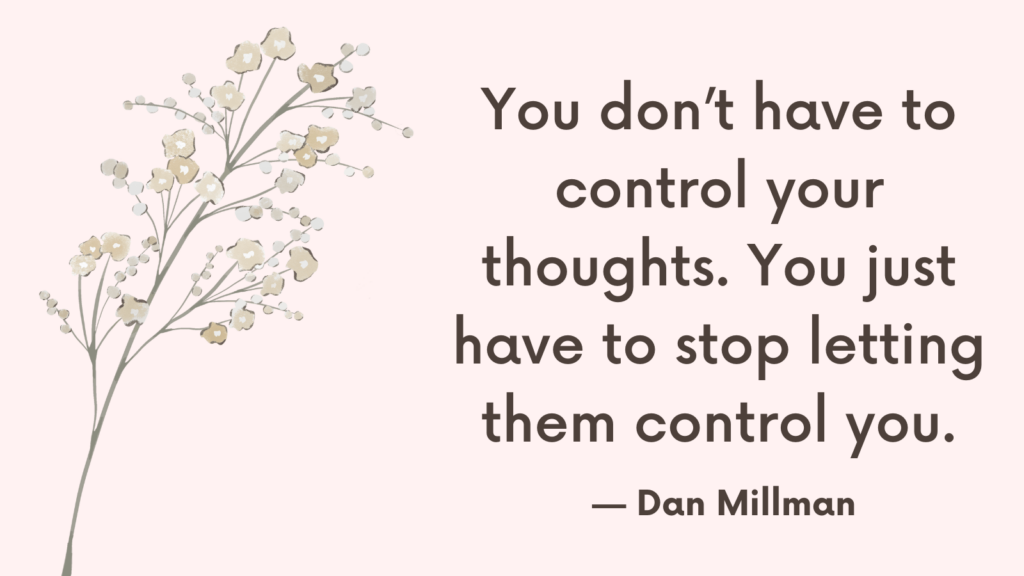Panic attacks can be a terrifying experience, making you feel like you’re losing control or facing imminent danger.
Understanding the root causes of panic attacks and learning how to stop them is crucial for reclaiming your life.
In this comprehensive guide, we will delve into what triggers panic attacks, the underlying causes, and three essential steps to stop them from recurring.
The Panic Attack Cycle: Anxiety About Anxiety
Panic attacks often stem from a fear of feeling anxious.
This fear creates a cycle where physical sensations, such as a pounding heart or queasy stomach, trigger anxiety.
This anxiety then escalates as individuals judge and label these sensations as dangerous, leading to a full-blown panic attack.
The cycle is self-perpetuating, with each panic attack reinforcing the belief that anxiety is dangerous.
Related: How To Overcome Agoraphobia Without Medication? 9-Step Guide To Control Panic Attack In Public
Three Steps to Stop Panic Attacks
1. Reframe Your Relationship with Anxiety
The first step to stopping panic attacks is changing your relationship with anxiety.
Understand that anxiety is not inherently dangerous.
It’s a natural response that can be managed.
Instead of trying to force your anxiety away, accept it as a normal emotion.
Recognize that anxiety is a part of the human experience and that feeling anxious does not mean something is wrong.
2. Avoid Catastrophizing
Catastrophizing, or imagining the worst possible outcome, fuels panic attacks.
When you feel anxious, avoid thoughts like “What if I have a panic attack?” or “This is the worst possible time to feel anxious.”
Instead, remind yourself that anxiety is temporary and manageable.
By reframing your thoughts, you can reduce the intensity of your anxiety and prevent it from escalating into a panic attack.
Related: Am I Having A Panic Attack Quiz
3. Practice Mindfulness and Self-Compassion
Mindfulness involves being present in the moment and observing your thoughts and feelings without judgment.
Practicing mindfulness can help you stay grounded during moments of anxiety.
Additionally, self-compassion allows you to treat yourself with kindness and understanding, especially during difficult times.
By combining mindfulness with self-compassion, you can create a supportive internal environment that reduces the likelihood of panic attacks.
Related: 9 Silent Panic Attacks Symptoms
Practical Techniques to Manage Anxiety
Implementing practical techniques can further help you manage anxiety and prevent panic attacks:
1. Deep Breathing Exercises
Deep breathing can activate the body’s relaxation response, reducing anxiety.
Practice deep breathing by inhaling slowly through your nose, holding your breath for a few seconds, and then exhaling slowly through your mouth.
2. Progressive Muscle Relaxation
This technique involves tensing and then relaxing different muscle groups in your body.
It can help release physical tension associated with anxiety.
3. Grounding Exercises
Grounding exercises, such as focusing on your five senses, can help bring your attention back to the present moment.
This can be particularly useful during a panic attack.
Related: Best 10 Grounding Meditation Exercises
4. Regular Physical Activity
Exercise is a natural way to reduce anxiety.
It releases endorphins, which are chemicals in the brain that act as natural painkillers and mood elevators.

Conclusion
Understanding and overcoming panic attacks is a journey that involves changing your relationship with anxiety, avoiding catastrophic thinking, and practicing mindfulness and self-compassion.
By implementing the steps and techniques outlined in this guide, you can break the panic attack cycle and reclaim control over your life.
Remember, managing panic attacks is a process that requires patience and persistence.
With the right strategies and support, you can overcome panic attacks and live a happier, more fulfilling life.



